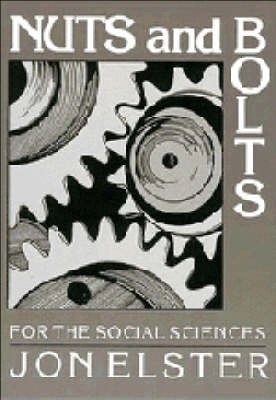This book is intended as an introductory survey of the philosophy of the social sciences. It is essentially a work of exposition which offers a tool-box of mechanisms - nuts and bolts, cogs and wheels - that can be used to explain complex social phenomena. Within a brief compass, Jon Elster covers a vast range of topics. His point of departure is the conflict we all face between our desires and our opportunities. How can rational choice theory help us understand our motivation and behaviour? More significantly, what happens when the theory breaks down but we still cleave to a belief in the power of the rational? Elster describes the fascinating range of forms of irrationality - wishful thinking, the phenomenon of sour grapes, discounting the future in non-cooperative behaviour. He shows how these issues bear very directly upon our lives in such concrete situations as wage bargaining, economic cartels, political strikes, voting in elections, and court decisions involving child custody. This is a remarkably lucid and comprehensive introduction to the social sciences for students of political science, philosophy, sociology and economics. It will also prove fascinating to any non-academic readers who want to understand a little better the forces governing human behaviour in its social context.
Åtkomstkoder och digitalt tilläggsmaterial garanteras inte med begagnade böcker





















